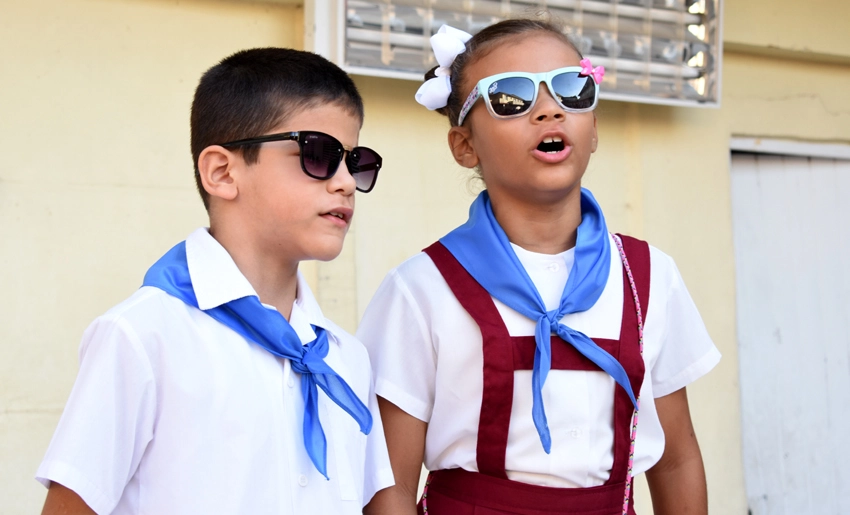On January 4, 1962 Special Education was born in Cuba, one of the most humane and noble works of the Revolution. In the province of Holguin in the present school year it develops programs focused on social inclusion, self-validism and continuity of studies.
At present more than three thousand children in the whole territory, grouped in 25 educational institutions, receive contents adapted to their intellectual capacities that facilitate the acquisition of elementary knowledge. The study programs include basic subjects such as Spanish, History and Mathematics.
The broad coverage of attention to schoolchildren with special educational needs in Holguín allows inclusive and integral education for children, adolescents and young people with sensory disabilities -deaf, hearing impaired, blind, low vision, strabismic, amblyopic and deaf-blind-, mental retardation, retarded mental development, physical-motor limitations and autism.
All schools at this educational level apply the basic curriculum of general education.
In the provincial capital it includes institutions such as the Modesto Fornaris Psychopedagogical Medical Center and the schools La Edad de Oro, Reynerio Almaguer and Haydée Santamaría, dedicated to the attention of children with visual difficulties, Down Syndrome and Autism Spectrum Disorder, respectively.
In Holguín this teaching implements the III Improvement of the National System of Education with the challenge of reaching the comprenesive formation of students from a more contextualized and participative instruction that narrows the bonds between teachers and students and responds to the specific difficulties of the schoolchildren diagnosed with intellectual, sensorial disability, retardation in the psychic development, disorder of the communication or of the conduct.
Likewise, interaction with the family, which allows reinforcing contents and skills developed during school hours, and psychological help are fundamental for learning.
Mobile teachers take on the training of students who are currently unable to attend classes due to physical-motor limitations or chronic degenerative diseases. This pedagogical service benefits more than 100 children with severe disabilities, living in areas of difficult access or long term medical treatment.
In Cuba, Special Education is one of the most noble and optimistic ideas of Fidel Castro and constitutes one of the projects of the Cuban Revolution in favor of vulnerable populations.
- Cuba Adopts Winter Time on November 2nd - 1 de November de 2025
- Venezuela Sends Humanitarian Aid to Cuba and Jamaica - 1 de November de 2025
- Cuba clarifies alleged offer of aid from the U.S. - 1 de November de 2025

